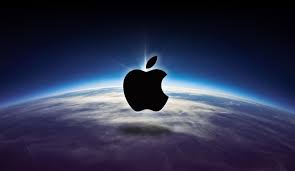Apple’s New Trillion-Dollar Valuation Is Fueled by Its Old-Fashioned Ways

Well, it’s happened. Apple (aapl) is now officially the first trillion-dollar American company, after its stock price ended yesterday at $ 207.39. The first trillion-dollar company in the world was Petrochina, albeit briefly, when it first floated back in 2007 (and before it lost $ 800 billion in value over the next decade.) For comparison’s sake, Amazon (amzn) is worth $ 877 billion, Alphabet (googl) $ 851 billion and Microsoft (msft) $ 822 billion.
CEO Tim Cook celebrated the moment in an all-staff memo by acknowledging it as a “significant milestone” that gives Apple’s workers “much to be proud of,” while adding that it is “not the most important measure” of Apple’s success.
“Financial returns are simply the result of Apple’s innovation, putting our products and customers first, and always staying true to our values,” Cook wrote. He’s right. It’s extremely difficult to avoid comparing Apple’s good fortunes with the recent slump at Facebook (fb), which can be crudely summed up as the result of the social network’s user-exploiting ways catching up with it.
To be clear, Apple has never been shy of squeezing as much cash out of its customers as possible—I write this as someone who recently uttered soft curses as he paid €50 ($ 57.83) for an official Apple charger and cord (sold separately, naturally) for his iPad. The company’s valuation followed stellar results that were the result not of selling a ton more devices, but of charging more for them.
But Apple’s premium pricing is clear and on the level. There’s no you-are-the-product trickery going on with the core business model here—you’re buying the product, for a lot of money. That’s not only fair; it’s a more sustainable approach, too, and perhaps even admirably old-fashioned. Indeed, although Apple does provide some limited ad-targeting capabilities based on App Store and News app usage, its heavy pro-privacy stance has led marketers to complain that it doesn’t collect enough data on its customers for their liking, leaving advertisers feeling like “second-class citizens.”
Cook didn’t invent that approach, but his stewardship of the company has been admirable, as borne out by the increase of over 285% in Apple’s share price since he took over. I lost count of the number of times I saw people excoriate the former COO for not being Steve Jobs, while claiming that Apple’s innovation has stagnated since the firm’s co-founder passed away in 2011. Perhaps there’s some truth in that, but the fact is that Apple continues to refine its products in ways that customers like, while largely treating those customers with respect.
I’m no Apple fanboy—I’m an old-school ThinkPad guy and I’ll take the nice midrange Android phone with expandable storage, thanks—but there can be little argument now about the direction Cook chose to take.


